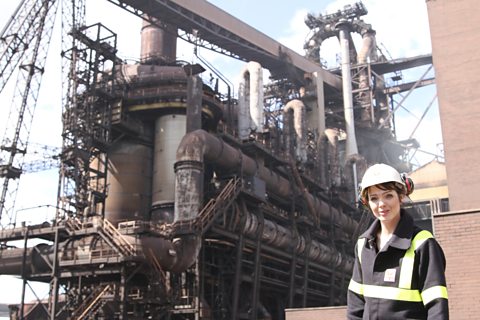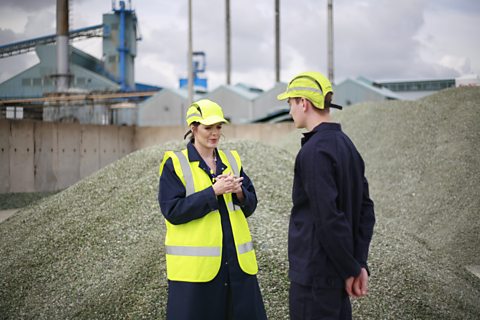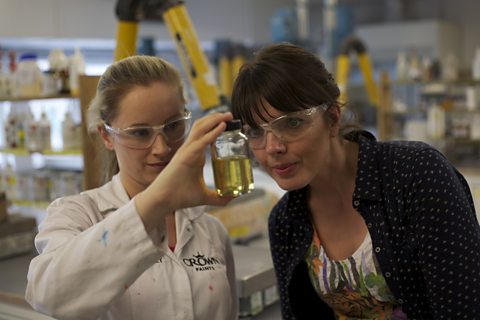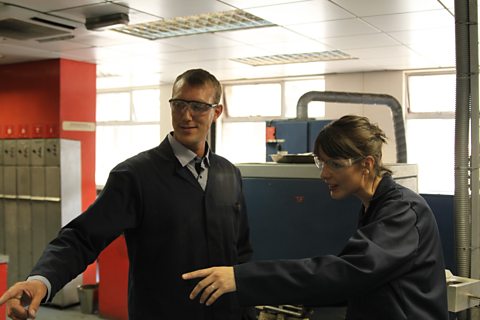Fran Scott explains iron extraction. The main raw material is iron ore and this arrives in the UK by ship in huge quantities from Brazil.
Other raw materials include coal and limestone. The coal is converted to coke by heating.
Fran visits a blast furnace where iron oxide is reduced to iron by carbon monoxide.
The iron that is produced is called pig iron but this is brittle and must be processed into more useful types of iron, or converted to steel.
This clip is from the series Real World Chemistry.
Teacher Notes
Key Stage 3Help students to make the link between the reactivity of a metal and the methods used to extract it. Because iron is below carbon in the reactivity series, it can be displaced from its oxide ore by heating with carbon.
Use post-it notes to label students as carbon, iron and oxygen and then do a role play to help them to understand that the most reactive element will end up bonded to the oxygen.
This will help them to understand why this method cannot be used to extract aluminium.
Key Stage 4
Students could be asked to explain why carbon cannot be used to extract aluminium.
Challenge them to summarise the process as a flowchart.
Curriculum Notes
These clips will be relevant for teaching Science and Chemistry at KS4 in England, Wales and Northern Ireland and National 4/5 in Scotland.
The topics discussed will support OCR, Edexcel, AQA, WJEC GCSE in England and Wales, CCEA GCSE in Northern Ireland and SQA National 4/5 and Higher in Scotland.
More from Real World Chemistry
How is plastic made? video
Science presenter Fran Scott visits a company that makes PVC to find out how you turn raw materials into the every day plastic goods that surround us.

How is glass made? video
Fran Scott visits a glass production plant and learns how glass is made and the raw materials used are described.

How is paint made? video
Fran Scott goes on a tour of a paint factory and the ingredients for oil and emulsion paints are discussed and how they are made and tested.

How is steel made? video
Fran Scott explains the science behind steel production from the raw materials through to the finished metal.
